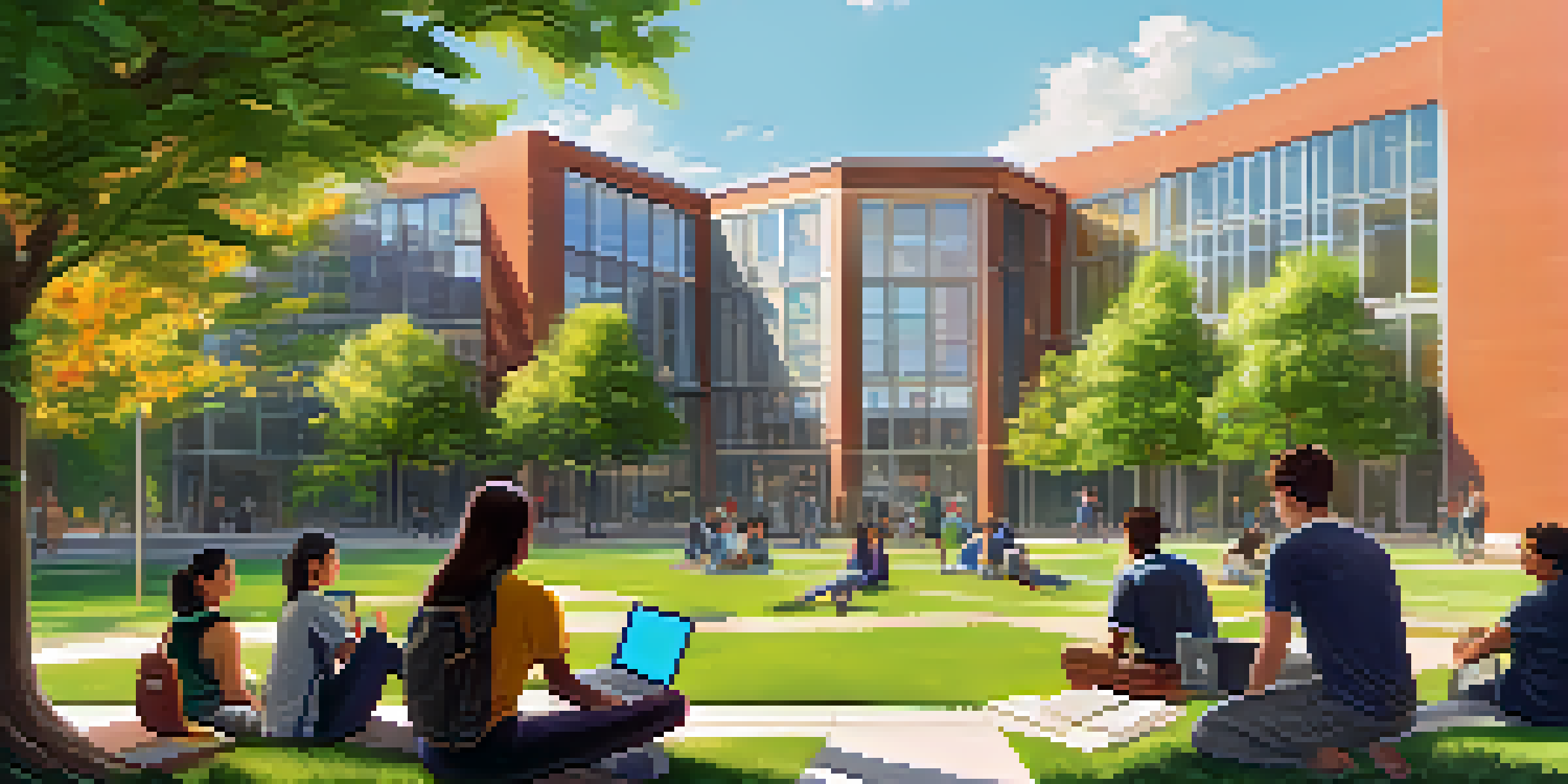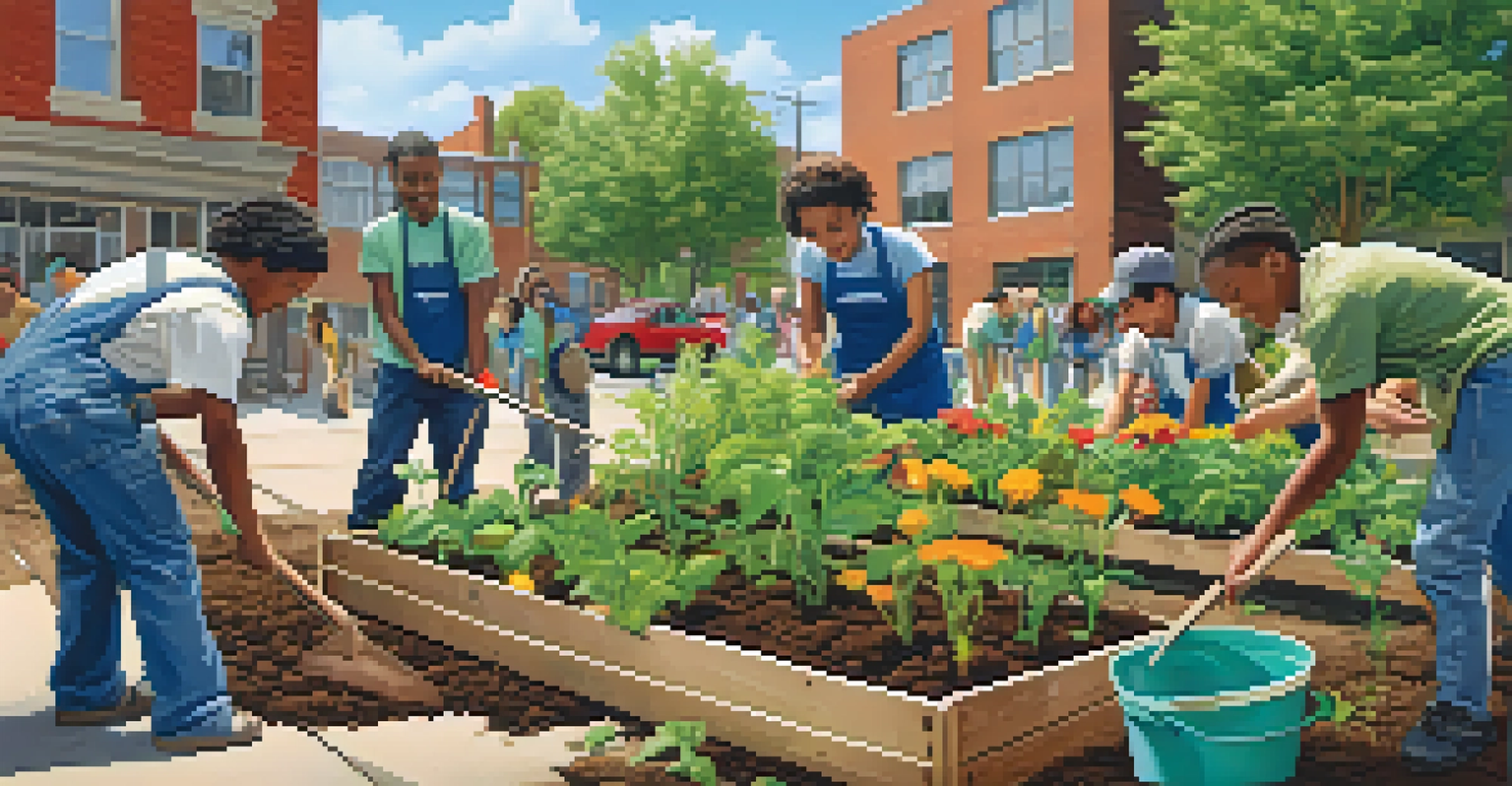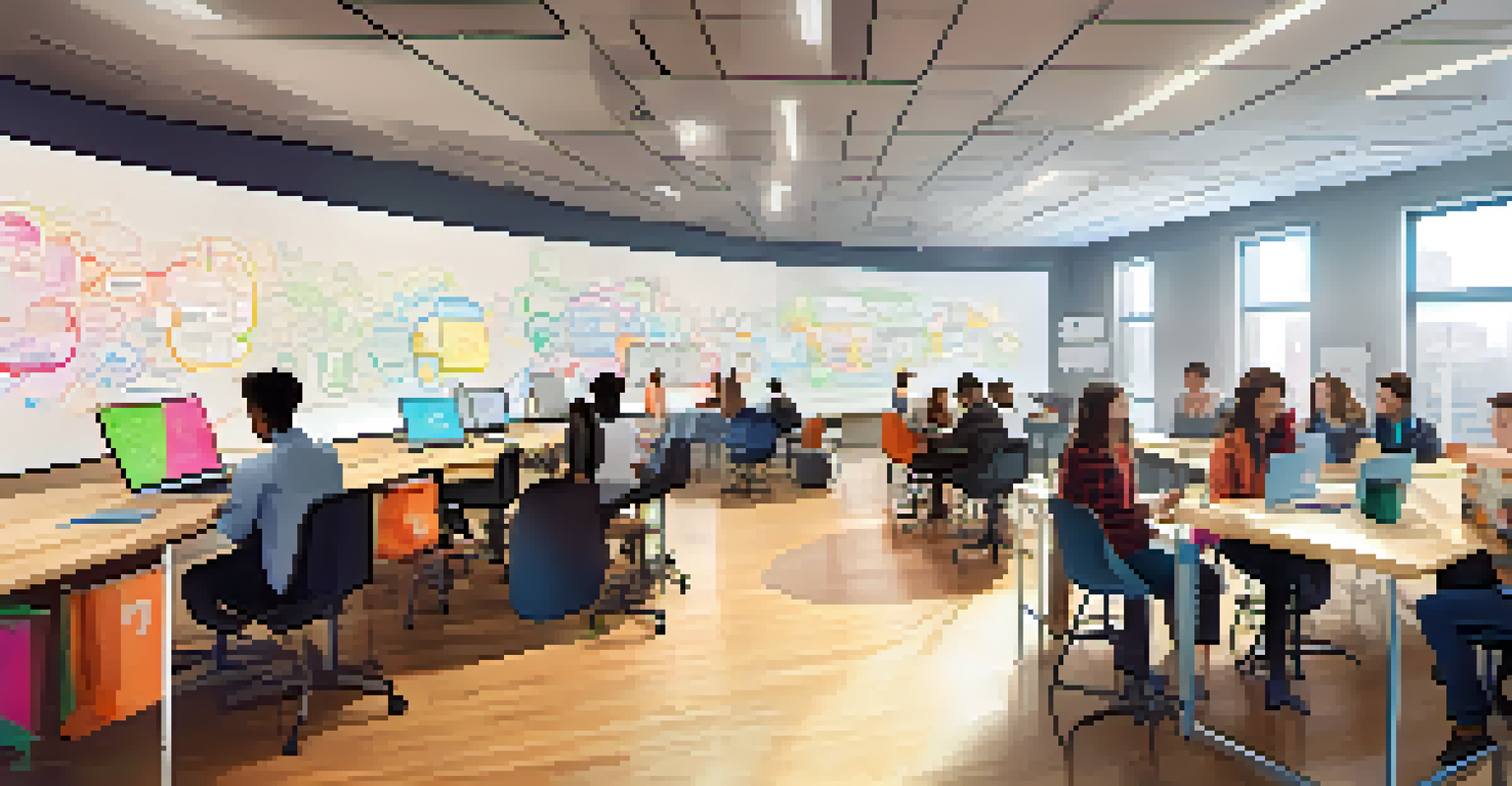Innovative Programs at Illinois Colleges Shaping Futures

Data Science Programs Leading the Charge in Illinois
In recent years, data science has emerged as a powerhouse field, and Illinois colleges are at the forefront. By offering specialized degrees and certifications, institutions like the University of Illinois at Urbana-Champaign are equipping students with critical data analysis skills. These programs not only cover the technical aspects of data science but also emphasize real-world applications through capstone projects.
Data is the new oil, and data scientists are the new engineers.
For example, students often collaborate with local businesses to solve actual data challenges, providing them with invaluable experience. This hands-on approach bridges the gap between theory and practice, ensuring graduates are workforce-ready. As a result, employers are increasingly seeking out these well-prepared candidates, making data science programs a game-changer for students' career prospects.
Moreover, the interdisciplinary nature of these programs allows students from various backgrounds—be it engineering, business, or even the humanities—to find their niche in data science. This inclusivity broadens the talent pool, fostering a diverse and innovative workforce that reflects the complexities of modern industries.
Sustainability Initiatives: Preparing for a Greener Future
Sustainability has become a pressing global issue, and Illinois colleges are rising to the occasion with innovative programs. Schools like DePaul University are integrating sustainability into their curricula, offering courses that focus on environmental stewardship and responsible resource management. This commitment not only prepares students for careers in green industries but also instills a sense of social responsibility.

Through initiatives such as the Eco-Justice Collaborative, students engage in community projects that promote sustainable practices. These experiences empower students to take their knowledge beyond the classroom and make a tangible impact in their communities. For instance, students might work on urban gardening projects or renewable energy campaigns, directly contributing to local sustainability efforts.
Data Science Programs Transform Careers
Illinois colleges are equipping students with essential data analysis skills through practical, hands-on learning experiences.
Additionally, many programs are now offering certifications in sustainability management, providing students with specialized skills that enhance their employability. As businesses increasingly prioritize sustainable practices, graduates with expertise in this area are finding themselves in high demand, thus shaping a brighter future for both the environment and their careers.
Tech Incubators: Fostering Entrepreneurial Spirit
Illinois colleges are not just about traditional education; they are also breeding grounds for innovation and entrepreneurship. Institutions like Northwestern University have established tech incubators that support students in launching their own startups. These incubators provide resources such as mentorship, funding opportunities, and networking events, turning ambitious ideas into viable businesses.
The best way to predict the future is to create it.
Students participating in these programs benefit from the guidance of experienced entrepreneurs and industry professionals, who help them navigate the challenges of starting a business. For example, a student team might receive feedback on their business pitch from seasoned investors, refining their approach before seeking funding. This kind of practical insight is invaluable for aspiring entrepreneurs.
Moreover, the collaborative atmosphere within these incubators encourages students to connect with peers from different disciplines, fostering creativity and innovation. By working together, students can leverage diverse skill sets to develop unique solutions to real-world problems, making their ventures not only viable but also impactful.
Health Sciences Programs: Innovating Patient Care
The health sciences field is evolving rapidly, and Illinois colleges are adapting by offering cutting-edge programs. Schools like the University of Chicago are leading the way with innovative curricula that combine medical training with technology and research. This holistic approach equips students to tackle modern healthcare challenges head-on, ensuring they are well-prepared for their future careers.
For instance, students in these programs often engage in research projects that explore new treatments or healthcare delivery methods. This hands-on experience not only enriches their education but also contributes to advancements in patient care. By collaborating with hospitals and research institutions, students can see the direct impact of their work on community health outcomes.
Sustainability Education for Future Impact
Programs at Illinois institutions are instilling environmental stewardship, preparing students for careers in green industries.
Additionally, many programs emphasize interprofessional education, where students from various health disciplines learn together. This collaborative training fosters teamwork and communication skills, essential for providing effective patient care in today’s complex healthcare environment. Ultimately, these innovative health sciences programs are shaping a new generation of healthcare professionals dedicated to improving lives.
Arts and Humanities: Embracing Creative Innovation
Illinois colleges are also revolutionizing the arts and humanities, blending creativity with technology and social impact. Institutions like Columbia College Chicago offer programs that encourage students to explore new media and innovative storytelling techniques. This modern approach not only enhances artistic expression but also prepares students for careers in an increasingly digital world.
For example, students in multimedia arts programs might create interactive installations that address social issues, engaging their audience in meaningful dialogue. This intersection of art and activism not only enriches the cultural landscape but also empowers students to use their creative talents for positive change. The result is a vibrant community of artists who are unafraid to challenge norms and inspire others.
Furthermore, many programs incorporate experiential learning opportunities, such as internships with local galleries or theater companies. These experiences provide students with practical skills and industry connections, making them more competitive in the job market. By nurturing creativity and innovation, Illinois colleges are shaping a new wave of artists and thinkers ready to make their mark.
Interdisciplinary Studies: Breaking Down Barriers
The rise of interdisciplinary studies at Illinois colleges reflects the complexity of today's challenges. Programs that combine various fields, such as environmental science and public policy, are gaining traction. This flexible approach allows students to tailor their education to their interests and career goals, fostering a well-rounded skill set.
For instance, a student might pursue a degree that blends sociology and data analytics, preparing them to tackle social issues with a data-driven approach. This kind of interdisciplinary training is increasingly valuable in the job market, as employers seek individuals who can think critically across multiple domains. By breaking down traditional academic barriers, these programs cultivate innovative thinkers ready to address multifaceted problems.
Interdisciplinary Studies Foster Innovation
Illinois colleges are breaking down academic barriers, encouraging students to combine diverse fields for a well-rounded skill set.
Moreover, interdisciplinary studies encourage collaboration among students from different backgrounds, promoting a culture of shared knowledge and creativity. These diverse perspectives lead to richer discussions and more comprehensive solutions, ultimately preparing graduates to thrive in a complex, interconnected world. In this way, Illinois colleges are shaping the future leaders who will drive meaningful change.
Community Engagement: Building Stronger Connections
Community engagement is a priority for many Illinois colleges, as they recognize the importance of connecting with local populations. Programs focused on service learning allow students to apply their knowledge in real-world settings while making a positive impact. This involvement not only enriches students' educational experiences but also strengthens community ties.
For example, students in education programs might work with local schools to develop tutoring initiatives for underserved youth. These experiences provide valuable insights into the challenges faced by communities and help students develop empathy and leadership skills. By actively participating in community solutions, students are prepared to become responsible citizens and future leaders.

Additionally, many colleges have established partnerships with local organizations to address pressing social issues, such as poverty and health disparities. These collaborations offer students opportunities to engage in meaningful projects that align with their academic goals. Ultimately, community engagement programs are shaping socially conscious individuals who are committed to making a difference.